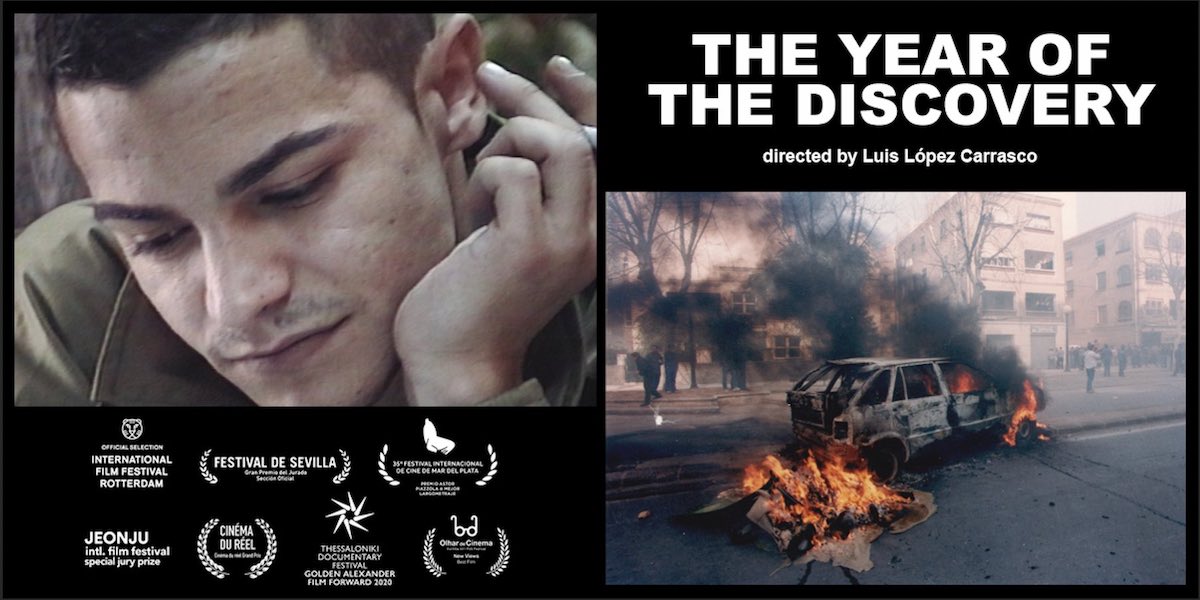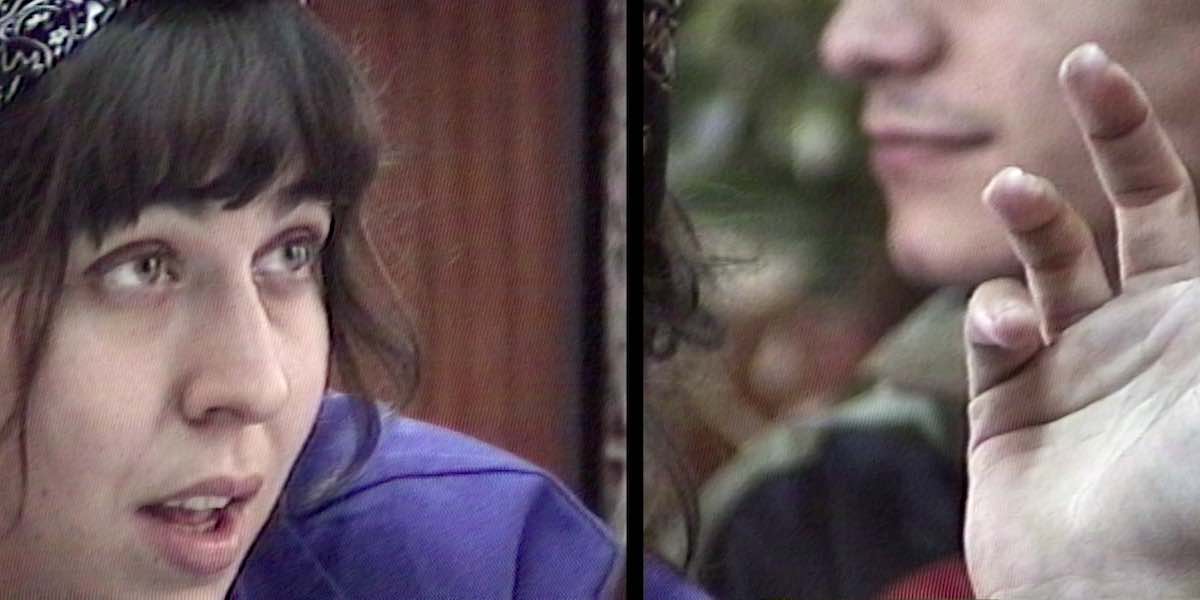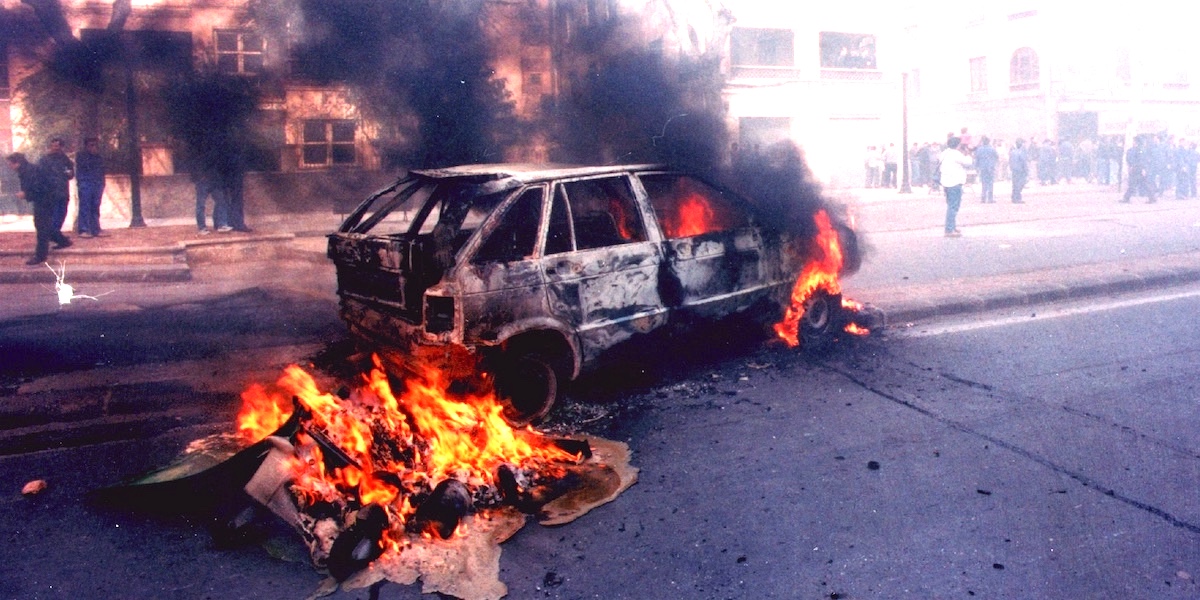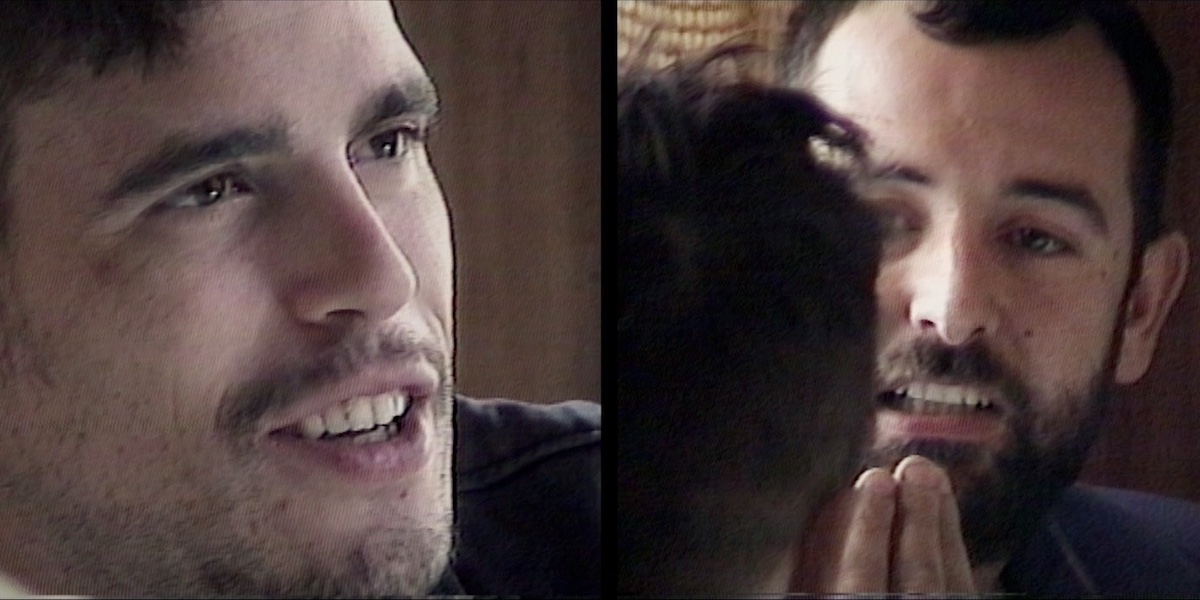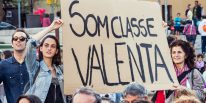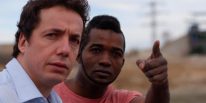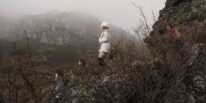Luis López Carrasco (Murcia, Spain, 1981) is a filmmaker and writer. In 2008 he co-founded Los Hijos, an experimental cinema and documentary collective. His work has been shown in numerous international film festivals like Locarno, Rotterdam, Toronto, NYFF Film Society of Lincoln Center, BAFICI or Viennale, and contemporary art centers like Museo Nacional Reina Sofía, Museo Guggenheim, Centre Georges Pompidou or ICA London.
Mar del Plata International Film Festival, Distrital Film Festival, Lima Independiente Film Festival, CGAI, and Arteleku dedicated monographic focus on Los Hijos work. European Film Festival Paliç awarded his career with the Underground Spirit Award. Their first feature-length film, Los Materiales, was awarded with the Jean Vigo Prize for Best Direction (Punto de Vista International Film Festival 2010) and International Jury’s Special Mention (FiD Marseille 2010). El Futuro, his first solo film, was premiered at the Locarno International Film Festival, screened in more than fifty international festivals, and awarded in BAFICI, Lima Independiente, Uruguay Winter Festival, and IBAFF.
He is also a producer of True Love (Ion de Sosa, 2011) and Sueñan los androides, (Ion de Sosa, 2014), which premiered in Berlinale 2015 and executive producer of Nuestra amiga la luna (Velasco Broca, 2016), premiered in Locarno International Film Festival. His short film Aliens premiered at the Locarno Festival and was awarded in Doxufest Kosovo, FIDOCS, Cinespagna Toulouse, and FICA. His second feature-length film, The Year of the Discovery, had its World premiere on IFFR Rotterdam.
